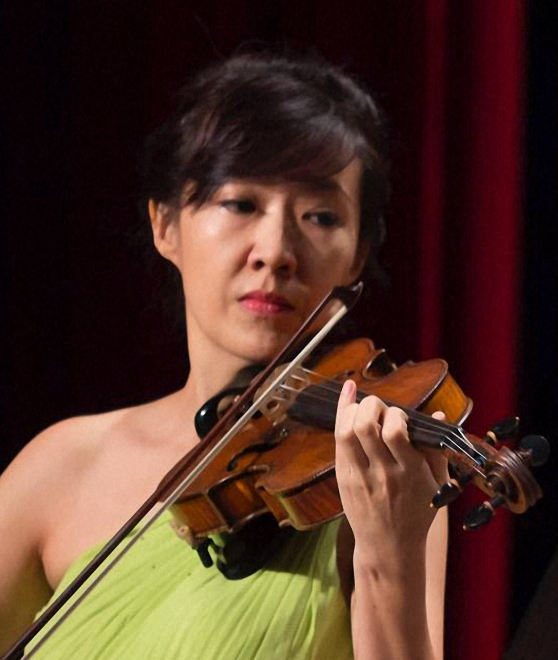
Nghệ sĩ violin Nguyễn Trúc Thuyên sinh ra trong một gia đình âm nhạc. Cha cô là nghệ sĩ cello, giáo sư tiến sĩ Cửu Vỹ. Từ năm 1987 đến năm 1991, cô nhận được học bổng theo học trung cấp violon tại Học viện Sư phạm Âm nhạc Gnesin – Moscow, CHLB Nga với giáo sư N. Koryshtina.
Năm 1999, Trúc Thuyên tốt nghiệp đại học loại xuất sắc tại Nhạc viện TP. Hồ Chí Minh, dưới sự hướng dẫn của Giáo sư Bích Ngọc. Sau đó cô về công tác tại Nhà hát Giao hưởng Nhạc Vũ Kịch TP. HCM (HBSO). Cô đã lưu diễn cùng với Dàn nhạc Giao hưởng HBSO tại Lào và Nhật Bản vào năm 2008 và 2014.
Hiện tại Trúc Thuyên là concertmistress của Dàn nhạc Giao hưởng HBSO. Cô thường xuyên xuất hiện với tư cách là nghệ sĩ độc tấu với dàn nhạc và trong các chương trình nhạc thính phòng do HBSO tổ chức. Cô cũng đồng thời giảng dạy violin tại Nhạc viện TP. HCM.
